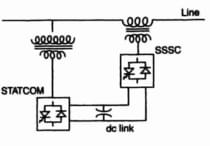1) Operations generated forecasts often not to do with
a. Inventory requirements
b. Resource needs
c. Time Requirements
d. Sales
2) Which of the following is not true for forecasting?
a. Forecasts are rarely perfect
b. The underlying casual system will remain same in the future
c. Forecast for group of items is accurate than individual item
d. Short range forecasts are less accurate than long range forecasts
3) Which of the following is not a forecasting technique?
a. Judgemental
b. Time series
c. Time horizon
d. Associative
4) In which of the following forecasting technique, subjective inputs obtained from various sources are analyzed?
a. Judgemental forecast
b. Time series forecast
c. Associative model
d. All of the above
5) In which of the following forecasting technique, data obtained from past experience is analyzed?
a. Judgemental forecast
b. Time series forecast
c. Associative model
d. All of the above
6) Delphi method is used for
a. Judgemental forecast
b. Time series forecast
c. Associative model
d. All of the above
7) Short term regular variations related to the calendar or time of day is known as
a. Trend
b. Seasonality
c. Cycles
d. Random Variations
8) The demand for period t-2 and t-1 is 10 and 12 cases respectively. As per naïve method, the demand for next period ‘t’ is
a. 10
b. 11
c. 12
d. 14
9) Calculate four periods moving average forecast from the last six periods
a. 40
b. 41
c. 42
d. 43
10) Calculate a weighted average forecast using a weight of .50 to the most recent period, .40 for the next recent period and .30 for the next period
a. 46.6
a. F = a - bt
b. F = a + bt
c. F = 2a - bt
d. F = 2a + bt
12) If the actual demand for a period is 100 units but forecast demand was 90 units. The forecast error is
a. -10
b. +10
c. -5
d. +5
13) The load forecasting is method to predict _______.
a. Past loads
b. Present loads
c. Future loads
d. None of these
14) The load forecasting methods give ___________ values.
a. Precise
b. Accurate
c. Not accurate
d. None of these
15) Depending upon chosen time period of study load forecasting maybe classified as _______
a. Short term
b. Medium term
c. Long term
d. All of these
16) Loads are classified into ______
a. Residential load
b. Commercial load
c. Industrial load
d. Other loads
e. All of these
a. Weather condition
b. Time factors
c. Special events
d. Class of customers
e. All of these
18) The load having less time period with larger variations is called __________
a. Residential load
b. Commercial load
c. Industrial load
d. Other loads
19) The load which occur for larger period as compared to the residential load is called_________
a. Residential load
b. Commercial load
c. Industrial load
d. Other loads
20) Which load having constant power demand____________.
a. Residential load
b. Commercial load
c. Industrial load
d. Other loads
21) The municipal loads, railway loads, traffic and government loads is come under category of __________.
a. Residential load
b. Commercial load
c. Industrial load
d. Other loads
22) ___________ is calculation of future load consumption based on various historical data and information available as per consumer pattern.
a. CUSUM
b. Load forecasting
c. Markov method
d. Bath tub method
23) The load curve describe_____
a. Generation with respect to load
b. Variation of load with respect to time
c. Generation with respect to time
d. None of above
24) Load forecasting is nothing but to estimate
a. Deterministic part
b. Stochastic part
c. Both a and b
d. None of the above
25) In Load forecasting, The present and lead time is represented by
a. σ,j
b. Π,k
c. Χ, l
d. None of the above







0 Comments
If you have any doubt, feel free to ask.